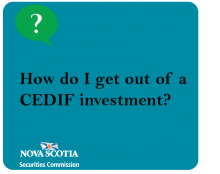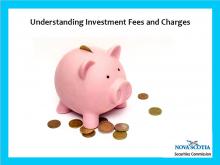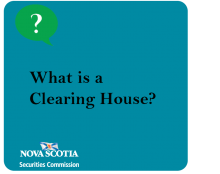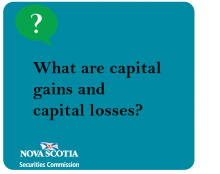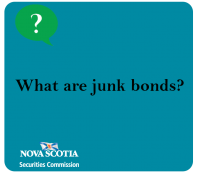Question of the Week – How do I get out of a CEDIF investment?
Submitted by nsscadmin on
Getting out of a CEDIF investment can be difficult and even if you can get out you may not be able to get your original purchase price or expected value for the shares.

